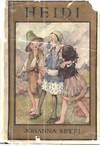
Aristotle on the Parts of Animals.
by W Ogle FRCP
- Used
- Fine
- Hardcover
- Condition
- Fine
- Seller
-
Scarborough , North Yorkshire, United Kingdom
Payment Methods Accepted
About This Item
Brown leather binding with gilt lines border on both boards. Gilt title, banding and decoration on the spine. All edges gilt.
Parts of Animals (or On the Parts of Animals; is one of Aristotle's major texts on biology. It was written around 350 BC. The whole work is roughly a study in animal anatomy and physiology; it aims to provide a scientific understanding of the parts (organs, tissues, fluids, etc.) of animals and asks whether these parts were designed or arose by chance.
Aristotle; 384–322 BC) was a Greek philosopher and polymath during the Classical period in Ancient Greece. Taught by Plato, he was the founder of the Lyceum, the Peripatetic school of philosophy, and the Aristotelian tradition. His writings cover many subjects including physics, biology, zoology, metaphysics, logic, ethics, aesthetics, poetry, theatre, music, rhetoric, psychology, linguistics, economics, politics, meteorology, geology and government. Aristotle provided a complex synthesis of the various philosophies existing prior to him. It was above all from his teachings that the West inherited its intellectual lexicon, as well as problems and methods of inquiry. As a result, his philosophy has exerted a unique influence on almost every form of knowledge in the West and it continues to be a subject of contemporary philosophical discussion. Little is known about his life. Aristotle was born in the city of Stagira in Northern Greece. His father, Nicomachus, died when Aristotle was a child, and he was brought up by a guardian. At seventeen or eighteen years of age he joined Plato's Academy in Athens and remained there until the age of thirty-seven (c. 347 BC). Shortly after Plato died, Aristotle left Athens and, at the request of Philip II of Macedon, tutored Alexander the Great beginning in 343 BC. He established a library in the Lyceum which helped him to produce many of his hundreds of books on papyrus scrolls. Though Aristotle wrote many elegant treatises and dialogues for publication, only around a third of his original output has survived, none of it intended for publication. Aristotle's views profoundly shaped medieval scholarship. The influence of physical science extended from Late Antiquity and the Early Middle Ages into the Renaissance, and were not replaced systematically until the Enlightenment and theories such as classical mechanics were developed. Some of Aristotle's zoological observations found in his biology, such as on the hectocotyl (reproductive) arm of the octopus, were disbelieved until the 19th century. He also influenced Judeo-Islamic philosophies (800–1400) during the Middle Ages, as well as Christian theology, especially the Neoplatonism of the Early Church and the scholastic tradition of the Catholic Church. Aristotle was revered among medieval Muslim scholars as "The First Teacher", and among medieval Christians like Thomas Aquinas as simply "The Philosopher", while the poet Dante called him "the master of those who know". His works contain the earliest known formal study of logic, and were studied by medieval scholars such as Peter Abelard and John Buridan. Aristotle's influence on logic continued well into the 19th century. In addition, his ethics, though always influential, gained renewed interest with the modern advent of virtue ethics. Aristotle has been called "the father of logic", "the father of biology", "the father of political science", "the father of zoology", "the father of embryology", "the father of natural law", "the father of scientific method", "the father of rhetoric", "the father of psychology", "the father of realism", "the father of criticism", "the father of individualism", "the father of teleology", and "the father of meteorology".
Reviews
(Log in or Create an Account first!)
Details
- Bookseller
- Martin Frost
(GB)
- Bookseller's Inventory #
- FB1539 /6B
- Title
- Aristotle on the Parts of Animals.
- Author
- W Ogle FRCP
- Format/Binding
- Leather binding
- Book Condition
- Used - Fine
- Quantity Available
- 1
- Edition
- Special edition
- Binding
- Hardcover
- Publisher
- Classics of Medicine Library.
- Date Published
- 1999
- Size
- 17 x24 x3cm
- Weight
- 0.00 lbs
Terms of Sale
Martin Frost
About the Seller
Martin Frost
About Martin Frost
Glossary
Some terminology that may be used in this description includes:
- Gilt
- The decorative application of gold or gold coloring to a portion of a book on the spine, edges of the text block, or an inlay in...
- Edges
- The collective of the top, fore and bottom edges of the text block of the book, being that part of the edges of the pages of a...
- Spine
- The outer portion of a book which covers the actual binding. The spine usually faces outward when a book is placed on a shelf....
Also Recommended
-

Save 10% on every purchase!
Join the Bibliophiles’ Club and start saving 10% on every book.
$29.95 / Year









